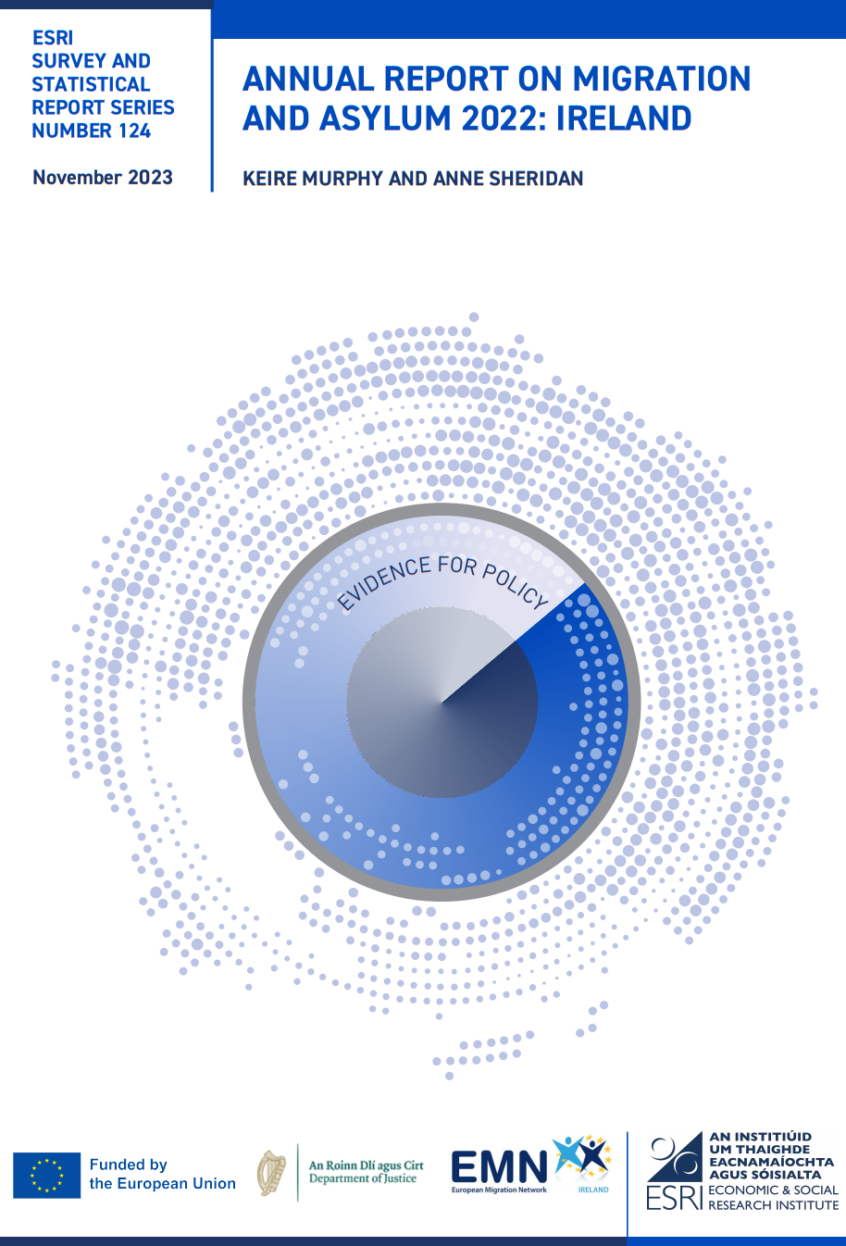The Annual Report on Migration and Asylum 2022: Ireland provides an overview of trends, policy and operational developments, research, and case law in the area of migration that occurred during 2022 in Ireland.
Some important developments in 2022 included:
- The introduction of the Employment Permits Bill in the Dáil, the aim of which is to consolidate the law concerning employment permits and modernise the employment permits system. Key provisions include the introduction of a seasonal employment permit, the moving of operational detail to Regulations to allow for greater flexibility, and automatic indexation of minimum remuneration thresholds.
- Unprecedented pressure on reception systems for international protection applicants, which resulted in extraordinary measures to scale up capacity.
- Doubts about the future of the plan and timelines of the White Paper to End Direct Provision and Establish a New International Protection Support Service following the significant increase in international protection applications, as a result of which the Department of Children, Equality, Disability, Integration and Youth (DCEDIY) began a review of the projected timelines and deliverables.
- The activation of the Temporary Protection directive for the first time in March 2022, and significant policy and operational developments in Ireland to respond to arrivals from Ukraine and to ensure access to the rights guaranteed by the Temporary Protection Directive.
- The publication and completion of second stage of the Dáil of the Criminal Justice (Incitement to Violence or Hatred and Hate Offences) Bill 2022. The Bill would repeal the Prohibition of Incitement to Hatred Act 1989 and replace it with provisions creating new incitement to violence or hatred offences, and would also provide for offences aggravated by hatred.
- The publication of the General Scheme of the Criminal Justice (Sexual Offences and Human Trafficking) Bill 2022, which included the draft statutory provisions for the revised National Referral Mechanism for victims of trafficking. The new approach will recognise the role of other
- state bodies and NGOs, in addition to An Garda Síochána, in identifying and referring victims of trafficking.
- The opening of the Regularisation Scheme for Long-Term Undocumented Migrants.
Key figures for 2022:
- Immigration to Ireland rose significantly in the year to April 2023, with 141,600 immigrants, a 31% increase from the year to April 2022. Emigration also continued to increase, with 64,000 emigrants in the year to April 2023, a 14% increase from the previous year. This gives net migration of 77,600, a 50% increase from the year before.
- A significant increase in first-residence permits, with 85,793 such permits issued. This was a 146% increase from 2021 and a 45% increase from 2019. As in previous years, education was the most common reason for permits (48% of all permits in 2022).
- A total of 39,995 employment permits were issued in 2022. This is a significant increase on equivalent figures for the previous ten years.
- The information and communication sector was the largest recipient of employment permits in 2022 (10,382 permits), a change from previous years when health and social work (9,791, now the second largest) was the largest sector. Almost all sectors saw large increases in permits from 2021.
- A total of 13,651 applications for international protection were made in 2022. This marked a significant increase from previous years (a 415% increase from 2021 and a 186% increase from 2019, the last comparable year before COVID-19 travel restrictions), and the highest number of asylum applications on record in Ireland. The top three countries of origin were Georgia, Algeria and Somalia. Applications for international protection in Ireland accounted for 1.3% of the EU total.
- According to Eurostat, a total of 4,470 first-instance decisions on international protection applications were made in 2022, a significant increase in decision making on previous years.
- In 2022, 363 people were resettled to Ireland, a 22% decrease from 2021.
- As of December 2022, 67,448 people had arrived in Ireland from Ukraine under the Temporary Protection Directive.
- A total of 597 referrals of unaccompanied minors were made to Tusla, Child and Family Agency, in 2022, of which 261 were from Ukraine. Tusla provided placements for 350 children, meaning that there were 200% more unaccompanied children being supported by Tusla at the end of 2022 versus the end of 2021.
- A total of 17,188 applications for citizenship were made in 2022, the highest since 2013 and a 44% increase from 2021. The number of certificates issued was also at its highest level since 2014, with a 39% increase from 2021, to 13,605. Similar to 2021, the UK was the most common country of origin.
- Thirty persons from countries outside the EEA were identified as victims of trafficking in human beings in Ireland in 2022. An additional 12 people from EEA countries or of Irish nationality were identified as victims.
- A total of 9,240 people were refused leave to land in Ireland in 2022, a 24% increase from 2019 and a 148% increase from 2021.
- After a significant decline in 2020 and 2021, there was an increase in the number of third-country nationals ordered to leave in 2022 with a total of 630 people ordered to leave, a 294% increase from 2021.
- There was a significant increase in visa applications and approvals compared with 2021 (with applications increasing by 133%, to 135,732), although applications and short-stay approvals remain below pre-COVID-19 levels.
- 6,548 applications relating to 8,311 people were received under the Regularisation Scheme for Long-Term Undocumented Migrants. In addition, 3,240 applications were received for the international protection strand of the regularisation scheme.
Corrigendum: This version updates figures 2.2 and 2.3 and corrects minor errors on pages 6 and 7.
See more:


